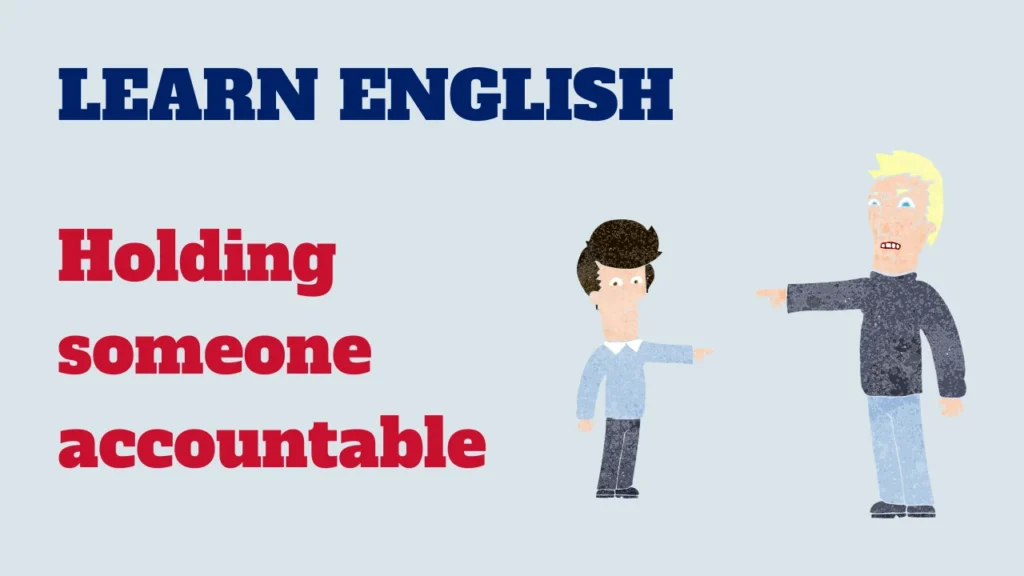Knowing how to hold someone accountable for their actions or accuse them of something is essential for clear communication.

In this lesson, we will explore various ways to hold someone accountable or accuse them in English, using appropriate words and expressions to communicate your concerns.
Holding someone accountable for an action:
You are responsible for… – Indicating responsibility
“You are responsible for” is a straightforward expression to attribute responsibility for something to someone.
Example:
You are responsible for this mistake.
It’s your fault – Assigning responsibility
“It’s your fault” is used to directly indicate that someone is responsible for an action.
Example:
It’s your fault we missed the train.
You made a mistake – Expressing fault
“You made a mistake” means that someone has made an error and is responsible for it.
Example:
You made a mistake by not following the instructions.
Accusing someone:
I accuse you of… – Formal accusation
“I accuse you of” is used for a formal or serious accusation.
Example:
I accuse you of theft.
You did this – Direct accusation
“You did this” is a direct and clear accusation towards someone.
Example:
You did this, didn’t you?
I think you’re guilty – Expressing an opinion
“I think you’re guilty” is a way to express an opinion about someone’s guilt.
Example:
I think you’re guilty of not returning the money.
Accusing in a more specific manner:
You broke the law – Accusing of breaking the law
“You broke the law” is used to accuse someone of violating a law.
Example:
You broke the law by driving without a license.
I hold you responsible – Accusing of responsibility
“I hold you responsible” means formally attributing responsibility for something to someone.
Example:
I hold you responsible for the failure of this project.
You can’t deny your responsibility – Making responsibility clear
“You can’t deny your responsibility” is used to make responsibility clear and non-negotiable.
Example:
You can’t deny your responsibility in this accident.
Knowing how to hold someone accountable for their actions or accuse them of something in English is crucial for addressing problems and conflicts transparently. Choose the response that best suits the situation and your intention. Practice regularly to strengthen your communication skills in English. Happy practicing!



